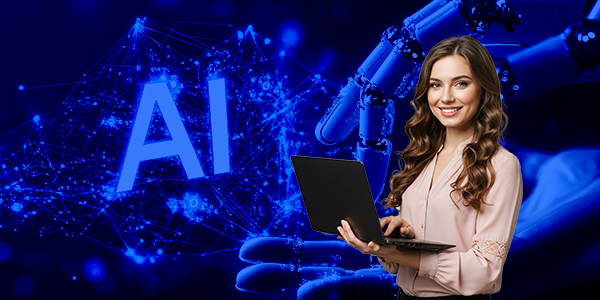In the rapidly evolving landscape of Indian enterprise technology, the quest for competitive advantage has given rise to artificial intelligence as the definitive catalyst for organizational transformation. Just as digital transformation once revolutionized traditional business models, AI now emerges as the critical differentiator that separates industry leaders from those struggling to maintain relevance in an increasingly complex marketplace. For Indian enterprises seeking to harness the transformative power of artificial intelligence, building resilient AI strategies has evolved from a strategic option to an absolute business imperative.
The AI Revolution Transforming Global Business Operations
Artificial intelligence is fundamentally reshaping how organizations across the globe approach operational efficiency, customer engagement, and strategic decision-making. From manufacturing facilities in Mumbai to financial services firms in Bangalore, the impact of AI technologies extends far beyond simple automation, creating unprecedented opportunities for innovation and growth. The transformation happening within your industry is not merely about implementing new tools; it represents a comprehensive reimagining of how business processes can be optimized, how customer experiences can be enhanced, and how organizational capabilities can be amplified through intelligent systems.
Consider the profound changes already visible in sectors ranging from healthcare to retail, where AI-powered solutions are enabling predictive analytics, personalized customer interactions, and automated decision-making that would have been impossible just a few years ago. Your organization’s ability to compete effectively in this new paradigm depends not just on adopting AI technologies but on developing a comprehensive strategy that integrates these capabilities seamlessly into your existing operational framework while preparing for future innovations that have yet to emerge.
The velocity of AI advancement means that organizations failing to establish robust AI strategies today will find themselves at an increasingly significant disadvantage tomorrow. This reality makes the development of resilient AI frameworks not just advantageous but essential for maintaining competitive positioning in the modern business environment.
Critical Leadership Role in AI Implementation Success
Your role as a C-suite executive or industry leader becomes exponentially more critical when navigating the complex landscape of AI implementation within your organization. The successful deployment of artificial intelligence technologies requires a level of strategic oversight and decision-making that extends far beyond traditional technology adoption processes. Unlike conventional software implementations that primarily affect specific departments or functions, AI integration touches every aspect of your organization, from operational workflows to customer interactions, from employee responsibilities to regulatory compliance requirements.
The responsibility for AI strategy development cannot be delegated entirely to technical teams, regardless of their expertise. Your leadership perspective is essential for aligning AI initiatives with broader business objectives, ensuring that technological capabilities serve strategic goals rather than existing as isolated solutions. This alignment requires a deep understanding of both your organization’s current capabilities and future aspirations, combined with a realistic assessment of how AI technologies can bridge the gap between the present state and desired outcomes.
Furthermore, your leadership is crucial in fostering the organizational culture necessary for successful AI adoption. Resistance to change, fear of job displacement, and uncertainty about new processes can significantly impede AI implementation success. Your ability to communicate the vision, address concerns, and demonstrate commitment to supporting employees through the transition determines whether AI initiatives flourish or falter within your organization.
Achieving Cyber Resilience in the Modern AI Era
The integration of artificial intelligence into your enterprise operations introduces a complex array of cybersecurity considerations that require sophisticated approaches to risk management and threat mitigation. As your organization becomes increasingly dependent on AI systems for critical business functions, the potential impact of security breaches, data compromises, and system vulnerabilities grows exponentially. Building cyber resilience in the AI era demands a comprehensive understanding of how artificial intelligence both enhances and complicates your security posture.
Traditional cybersecurity frameworks, while still relevant, must be augmented with AI-specific security measures that address the unique vulnerabilities introduced by machine learning models, automated decision-making systems, and large-scale data processing requirements. Your AI systems require protection not only from external threats but also from adversarial attacks designed to manipulate AI behavior, data poisoning attempts that can corrupt learning processes, and model extraction attacks that could expose proprietary algorithms.
The development of robust cyber resilience requires a multilayered approach that encompasses data security throughout the AI pipeline, from initial collection and preprocessing through model training and deployment. This includes implementing secure data handling practices, establishing access controls that limit exposure to sensitive information, and developing monitoring systems capable of detecting anomalous behavior in AI-driven processes. Additionally, your organization must prepare for scenarios where AI systems themselves become compromised, requiring backup processes and manual override capabilities that can maintain business continuity during security incidents.

Creating Effective AI Governance Frameworks
Establishing a comprehensive governance framework for artificial intelligence represents one of the most critical steps your organization can take to ensure responsible and effective AI deployment. Unlike traditional technology governance, AI governance must address the unique challenges posed by systems that learn, adapt, and make autonomous decisions based on data patterns rather than predetermined rules. It must balance the need for innovation and agility with requirements for transparency, accountability, and regulatory compliance.
The foundation of effective AI governance begins with clear policies and procedures that define how AI systems should be developed, tested, deployed, and monitored within your organization. These policies must address critical questions about data usage, model validation, decision-making transparency, and human oversight requirements. Your framework should establish clear lines of responsibility for AI system performance, including mechanisms for addressing cases where AI decisions produce unexpected or undesirable outcomes.
Regulatory compliance represents another crucial aspect of AI governance, particularly as governments worldwide develop new regulations specifically targeting artificial intelligence applications. It should be flexible so it can adapt to evolving regulatory requirements and maintain operational efficiency. This includes establishing audit trails for AI decision-making processes, implementing explainability features that allow for human understanding of AI reasoning, and developing documentation standards that support regulatory review and compliance verification.
The governance framework must also address ethical considerations surrounding AI deployment, including fairness, bias mitigation, and the societal impact of automated decision-making. Your organization’s reputation and long-term success depend on ensuring that AI systems operate in ways that align with societal values and expectations, making ethical governance not just a moral imperative but a business necessity.
Driving Innovation While Maintaining Accountability
The challenge of fostering innovation while maintaining appropriate levels of accountability represents one of the most complex aspects of AI strategy development. Your organization must create an environment that encourages experimentation and creative problem-solving while ensuring that AI initiatives remain aligned with business objectives and risk tolerance levels. This balance requires sophisticated management approaches that can adapt to the unique characteristics of AI development and deployment.
Innovation in artificial intelligence often requires significant experimentation, including the development and testing of multiple approaches before identifying optimal solutions. Your organizational culture must support this iterative process while maintaining clear expectations about performance standards and outcome accountability. This includes establishing metrics that can effectively measure AI system performance, implementing feedback mechanisms that enable continuous improvement, and creating processes for scaling successful experiments while discontinuing unsuccessful ones.
The accountability framework must extend beyond technical performance to encompass business impact, ethical considerations, and long-term strategic alignment. Your organization needs mechanisms for tracking how AI initiatives contribute to business objectives, assessing their impact on various stakeholder groups, and ensuring that the pursuit of innovation does not compromise other important organizational values or commitments.
The Non-Optional Nature of AI Adoption for Modern Enterprises
The question facing your organization is no longer whether to embrace artificial intelligence, but how quickly and effectively you can integrate AI capabilities into your operational framework. The competitive landscape has shifted fundamentally, creating a reality where organizations without robust AI strategies find themselves at an increasingly insurmountable disadvantage. Your competitors who have successfully implemented AI solutions are already experiencing the benefits of enhanced efficiency, improved decision-making, and accelerated innovation cycles.
The transformative potential of artificial intelligence extends across every aspect of modern business operations, from customer service and marketing to supply chain management and financial analysis. Organizations that delay AI adoption risk falling behind not just in terms of operational efficiency, but in their ability to understand and serve their customers, adapt to market changes, achieve growth, and drive innovation.
For Indian enterprises, the imperative for AI adoption is particularly acute given the rapid pace of technological advancement across the region and the increasing expectations of digitally sophisticated customers and partners. Your organization’s future success depends on your ability to harness AI technologies effectively, making the development of comprehensive AI strategies not just beneficial but essential for long-term viability and growth in the modern business environment.
The journey toward AI-powered enterprise transformation requires careful planning, strategic thinking, and commitment to continuous learning and adaptation. By focusing on building resilient AI strategies that encompass governance, security, innovation, and accountability, your organization can position itself to thrive in the artificial intelligence era while maintaining the operational excellence and ethical standards that define successful enterprises.




